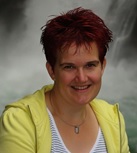 Large-scale methane measurements on individual ruminants for genetic evaluations
Large-scale methane measurements on individual ruminants for genetic evaluations
Yvette de Haas

Tell us about yourself (Who are you? Where are you from? What is your educational background?)
My name is Yvette de Haas from the Netherlands. I graduated from Wageningen University in 1999, and after that I started as a PhD candidate on the use of ‘somatic cell count patterns’ to improve udder health of dairy cattle. After my PhD I did a Post Doc at ETH in Switzerland and I worked for the Dutch breeding company CRV. Then I returned in Wageningen and now my main focus is on Resource Efficiency; i.e., both improving feed efficiency and reducing methane emissions of dairy cattle.
What is your area of expertise?
My expertise is Animal Breeding. My competence is connecting people. My interest is in developing new traits to improve livestock.
Where does your focus lie within your current project(s)? (related to methane)
The focus is on using animal breeding as a mitigation strategy to reduce methane emissions from dairy cattle. Furthermore I am currently chairing both METHAGENE and the ASGG Network (www.asggn.org).
What would be the added value for you of joining an international researchers network? (such as the METHAGENE network)
I believe in creating synergies between disciplines, which can best be achieved in networks. I aim to avoid that wheels are invented twice, so learning from each other is a great benefit.
What and/or who inspired you to make a career in science?
My parents – they always took time to answer all my ‘how’-questions. But other than that, it wasn’t a thoughtful decision; I just continued doing what I liked most.
What do you enjoy most about your work?
Networking - connecting people - developing something new, that (in the end) helps the livestock sector.
What is your most stand-out or surprising moment in science so far?
The idea of METHAGENE started in the pub, and now it is an active network and meetings are attended by many people with lively discussions. That makes me feel proud!


